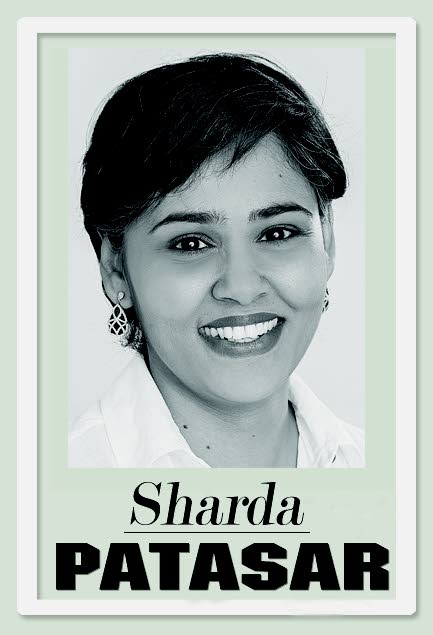What’s your story?

Sharda Patasar
“What’s your story?”
I looked at the psychologist with what I am assuming was a very blank expression. It had caught me off guard.
"I have no idea," I replied.
“What’s your story? Not anyone else’s story. Your story.”
"I really have no clue," I replied, racking my brain trying to figure out exactly what she was getting at.
“Well, how do you feel about this situation? What’s the story in your head?”
I thought about it for a while. Ah! Something clicked.
"I am very angry! Very, very angry that I wasted all these years!" I said through gritted teeth.
“Say it again!” she said.
I stumbled through the sentence as the emotions threatened to burst out.
“That’s your story,” she said quietly.
The emotions came tumbling out.
“You need to own that feeling. And lord! Silence that inner critic. It’s way too loud,” she advised.
I laughed.
A friend asked “What does it mean when they say own the feeling?”
As human beings we are taught that anger and jealousy for instance are negative feelings, that we must be rid of them as quickly as possible, that wishing someone bad will only come back to you. But then, in moments of deep betrayal, how does one combat those emotions that are only natural to occur? Hence the advice "own the feeling." It means, feeling the emotions as they occur and accepting them for what they are. There’s nothing wrong with that. We are all wired to connect and the way in which each one of us connects defines the way we approach relationships and feel about them. We come with emotions. We are meant to love and trust. In situations of hurt, (given that it is usually the negative event that brings forth the negative emotions), owning the feeling means not being hard on ourselves because it’s a process necessary for healing. It’s a narrative. What do we mean by a narrative?
Each one of us has a story. Identifying that story means that we can now pull it apart to investigate what drives us, the values that define how we approach life, how we connect and, therefore, how we define relationships. It is a powerful tool should each person be able to define their individual stories so that, in instances of hurt, we are able to push through the pain and chaos in order to identify who we really are rather than allowing incidents to define us. Easier said than done. But, should we manage to go through and clear the rubble created by the seeming catastrophe, there is something meaningful to be gained.
This thinking I believe does not apply only to the individual. It is a useful tool for the nation as well. As our murder count for the year moves into over three hundred and fifty persons, as people are robbed in broad daylight, as citizens now live lives of quiet imprisonment, it makes me ask the question: “What’s our story?” We are a nation in pain, yet there seems to be a movement towards moving around the issues rather than pushing through the pain. We have allowed ourselves to be defined by "doh-care-a-damn," "Carnival people." We are a people on auto-pilot, feeling and complaining but accepting the circumstances as our new normal. Changing this requires that we identify our story.
History has given to us stories that are embedded in our national consciousness, stories about our relationships with each other, stories about our belief system as a nation, stories about who we are as a people. We have accepted and internalised them. We, therefore, now run on auto-pilot having accepted them. Around us we breathe the stagnant air, moving through our daily life with an air of resignation for "it is what it is," we tell ourselves. We have side-stepped the emotion of pain and hurt, the emotion that should make us say, "This is not working for us. What do I do about it?" We are basically a people in survival mode.
In survival mode, we are mindless, people who sit passing the buck, never taking responsibility for ourselves – blaming the government, blaming the law makers, blaming the police service – for problems that we as a society have the power to begin rectifying by stepping back and saying to ourselves, how do I make a change?
How has our story been created for us? What in our history makes us accept the current circumstances? Is it that the history of slavery and indentureship has taught us that we must be silent in spite of the brutality because our survival depends on it? That we must fight each other for space because of survival? What exactly is your story? Finding that answer is crucial to how we move forward.

Comments
"What’s your story?"